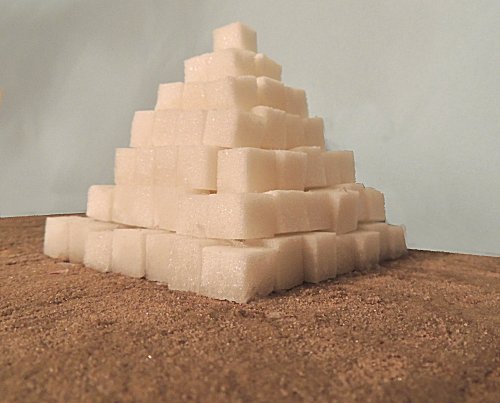
My almost five year old daughter is too young for homework–or at least that is what I believe. She’s picked up on the idea somewhere, though, and has introduced it into her play: “My homework today is to dance!”
When my son, almost three, mimicked her, “My homework is to throw this ball,” his sister replied, “You’re too young for homework!”
But is homework an effective learning tool at any age?
Homework’s Effect is Negligible…Except in Math
An interesting study suggests that the effect of homework on student performance is negligible–except in mathematics.
The study attempts to control for teacher traits and for student traits and comes up with the conclusion that additional hours of math homework are beneficial while more homework in science, social studies, and English language arts shows no effect.
Exceptions to the Data
Interesting exceptions to the data show that African American students benefit less from math homework than other students and Hispanic students benefit more from science homework. Also, parent education plays a factor with children of the most and least educated parents showing less of an effect from additional mathematics homework than those of parents with a high school diploma or “some college”.
While interesting, there are no immediate policy implications other than caution about increasing homework loads as a way to improve student performance.
Why Parents Want Homework
The authors of the study trace the current perception of homework as a performance-booster to the Space Race Era attempts to equal Russia in science and mathematics. Given current financial anxieties and worries about competing with China and other Asian economic powerhouses, it is not surprising that parents are concerned about “preparing” their children for a competitive job market.
Student Attitudes Towards Homework
As a former classroom teacher, I can say that, anecdotally, most students will do as little homework as they can without it impacting their grades. Not only is copying homework rampant but so is espionage to discover which assignments are being checked and taking calculated risks based on the grade value each respective teacher assigns to a given assignment. And honestly, you have to admire the cleverness of these students who game the system with their risk-benefit analysis. After all, we’ve made school about numerical grades while paying only the barest lip service to genuine learning.
This study is interesting because it seems to suggest something unique about the nature of mathematics homework. There are a number of possibilities, including the type of skills needed and tested in high school-level mathematics, the type of homework that tends to be assigned in math classes and its usefulness in preparing students for testing, and possibly also the way that students and teachers approach completing, checking, and reviewing mathematics homework.
As a former social studies classroom teacher, most of the homework I assigned was reading or research (to develop a prior knowledge base) and writing or projects (to process information). I discovered that most students did not attempt to do the reading, which may be a commentary on the dry nature of history textbooks or possibly on the students’ aforementioned risk-assessments. Of those who did, a shocking number of them seemed unable to read non-fiction texts for information.
Learning seemed to happen best when done in the classroom and then processed in a culminating project that took place partially in the classroom, partially at home.
The major stumbling block to implementing this discovery was the sheer volume of information students are expected to learn as part of a typical history class. If some of the acquisition of facts did not take place outside of the classroom, there was simply no way to complete the state-required syllabus in time for the exams.
The other discrepancies in this study also point to something key that is either happening or not happening at home while a student is completing homework. I think it is fair to say that students of average ability, whose parents see a benefit from homework and whose parents are able to help with the homework, are most likely to complete the homework in a productive manner. However, this does not explain the discrepancy between subject matter.
Another fascinating point in the study is their attempt to control for, as a teach trait, teachers of advanced classes assigning more homework. Personally, I have always believed that advanced students need shorter assignments of a more complex nature, rather than more homework.
Should We Assign More or Less Homework?
If there are any takeaways from this study, they may be that we need a true assessment as educators of why we are assigning homework, what type of homework we are assigning, and whether or not it is having the desired effect.
This study is also a reinforcement of the idea that there is a limit to the amount of homework that is productive. Assigning more homework beyond this breaking point has no effect at best, and brings a negative effect at worst.
Too Young for Homework?
While looking for possible preschool programs for my daughter, I visited a school where they assign homework every night. “For preschool?” I asked, incredulously. “Well,” she replied, “they need to get used to it for kindergarten.”
I came away from that exchange wondering, though, if this constant downward pushing of academics and the very concept of assigning work for the sake of assigning work was not only a failure to boost U.S. academic performance but possibly even one of the causes of our current woes.


Hi Candace,
It’s Mangomeru sorry couldn’t get here soon from my ipod.
Homework is one of the biggest debates between educators. I do think homework is cultural, in N.A, teachers give out homework, parents expect it and students are prepared to deal with it in whatever fashion they please.
In U.K homework is a foreign concept, in fact backpacks are non existence because textbooks remain in class. Teaching in both countries has opened my eyes to a culture of different learners but after much thought they are still just products of their environment.
N.A is built on the ideals that working hard will bring success. We honor individuals who overcome struggles to win in the game of life. School is the building blocks to develop those habits. We are trained to bring work from school and complete them in our free time. Homework allows the students to acknowledge and accept their place in society.
In the U.K the social class system still has a very strong influence. Crossing social barriers isn’t the pursuit, in fact I would say it’s about maintaining and up-keeping the lifestyle that they already have. I remember asking a 16 year old student why he didn’t want to do his math work and his response was that he didn’t need it to work in his dad’s shop. The non-homework culture causes the kids to grow up knowing that work is work and once you’re done with it, you forget about it and enjoy your life.
The overall world view of N.A is that we work to work, while the Europeans work to play. Neither system is perfect and I’m not sure we can take a stand without being bias.
I honestly think homework is trying to level out the playing field. There are many kids who are missing the simple foundation to learning and the school cannot commit to investing the time they need to bring them up by themselves, homework then become a signal to parents and students to become more involved in their education endeavors.
I too am disappointed that your preschool was giving homework out. I think that is too young but then again developing the habits and expectation of homework from that stage will make it easier on you when they get older. And perhaps giving them a head start in reading and writing will boost their confidence in kindergarten.
I’ve take the year off to re-locate the family and loosely home-school them. I give both my kids some worksheets on a weekly basis for the sole purpose of getting familiar of the idea of completing them. I’ve met too many parents who complain that their child rebels against it. And how can anyone disagree with the kids, homework takes the precious free time away but that too is just a life lesson.
I don’t know what the correct answer is but I do think teachers are under a great amount of stress trying to force-fed children who don’t want to learn and yet needing to cover all the state expectations.
The younger years are the most critical years in making life long learners or bottom dwellers of society. Giving the kids the keys to read and write are essential to get before grade four. If the students don’t have this foundation learning will become difficult in the older grades. Since teachers have limited time to reach all the students and their needs, homework then is an cry to parents to jump in an participate more.
Just a thought.
Steph
I agree that some teachers assign way too much homework. There should be a set amount for daily practices or even every other day. Especially when you are considering younger children. My two kindergarteners nearly hated their time at home this last year because EVERYDAY they were giveaway 30+ minutes of work to do at home. So this was their life M-F
630 – wake up and get ready for classes
730 – get on the bus to school
820 – begin class
320 – board the bus home
400 – get home and put away their stuff (grab a snack)
430 – begin homework
500 – eat dinner
600 – bath and prepare for bed
700 – nighttime chatting with mom
730 – bedtime
Where is the playtime here for young children? I know that school is extremely important and think it should be at the TOP of their to do list but every since day is too much on youngsters.
Teri @ Mom to Bed by 8
Don’t tell my kids but I HATE homework! I have 6 kids and I’ve been doing homework my whole life, literally. My kids, at times, do hours of homework….HOURS! They spend so much time in school and then HOURS at home. So technically, they get up, go to school, come home, snack, start homework, stop for dinner, homework, bath, homework, bed. Seriously no play time. Kids need play time!
We as adults (for the most part) can do our 8 hour jobs and go home and enjoy our families. Our children should be afforded this same luxury!
Great post/study! Thanks for sharing!
I am all about being a child’s first teacher. Part of the problem though is that other parents are not. at a young age, I think work should be done at school to not disadvantage kids based on lack of parental participation. I have a child who just completed kindergarten. I think they did a reasonable amount of homework that was individualized per child. It was stuff like practicing cutting, writing name, and there were monthly family activities. My main complaint was that they provided no instructions. While my husband & I are both college educated, I still had her send stuff back…He was supposed to write his name x amount of times not y amount of times. The rules constantly changing and it concerned me.
I do wonder about the amounts of homework, but it seems that teachers are trying to meet objectives and homework is one such attempt. It may be misguided, however.
I wonder how eliminating homework would influence basic memorization, for instance vocabulary, the periodic table of the elements, grammar, etc. (I also wonder if grammar falls into the same category as math). Students memorize at different speeds, so while it may take a student one class period to understand a current anatomical lesson, another student may need to take it home and spend more time on it. I agree that our school system does not allow for much “wiggle room”; teachers are expected to assign homework to the entire class, not just students who need it.
I enjoyed your post. I was a public and private school teacher and I did not give lots of homework. I believe most of the learning goes on in the classroom if the teacher is in love with what she is doing. Some parents won’t help the kids at home, some can’t, and others are in between somewhere. I homeschool my daughter with Time4Learning and Teaching Textbooks. We also supplement with whatever we need. Life lessons provide lots of learning for her. She doesn’t have homework and I am fine with that.
Joyfully,
Jackie
Joyfully,
Jackie
Some parents do not help their children at with homework and so if the child is struggling then the homework becomes a chore. Also, some teachers do not differentiate with the homework and you find the entire class getting the same homework and so some children will struggle whilst others find it too easy!
As the mom to 2 tween boys – homework is a nightmare. What kids really need every day is gym class and FREE time.
The only thing that homework does for us is make me the BAD GUY b/c I am the one enforcing that it gets finished….Rachel